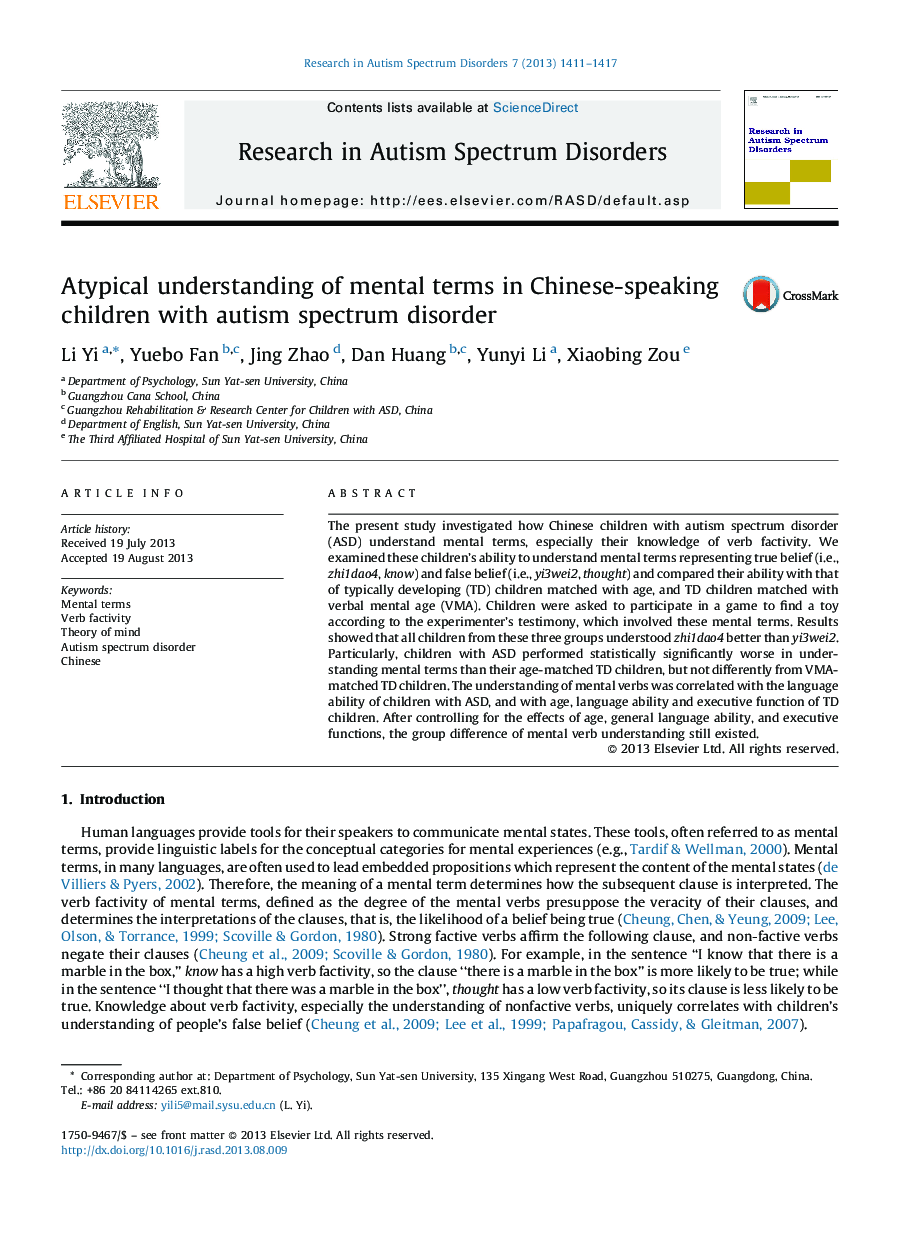| Article ID | Journal | Published Year | Pages | File Type |
|---|---|---|---|---|
| 10317213 | Research in Autism Spectrum Disorders | 2013 | 7 Pages |
Abstract
The present study investigated how Chinese children with autism spectrum disorder (ASD) understand mental terms, especially their knowledge of verb factivity. We examined these children's ability to understand mental terms representing true belief (i.e., zhi1dao4, know) and false belief (i.e., yi3wei2, thought) and compared their ability with that of typically developing (TD) children matched with age, and TD children matched with verbal mental age (VMA). Children were asked to participate in a game to find a toy according to the experimenter's testimony, which involved these mental terms. Results showed that all children from these three groups understood zhi1dao4 better than yi3wei2. Particularly, children with ASD performed statistically significantly worse in understanding mental terms than their age-matched TD children, but not differently from VMA-matched TD children. The understanding of mental verbs was correlated with the language ability of children with ASD, and with age, language ability and executive function of TD children. After controlling for the effects of age, general language ability, and executive functions, the group difference of mental verb understanding still existed.
Related Topics
Life Sciences
Neuroscience
Behavioral Neuroscience
Authors
Li Yi, Yuebo Fan, Jing Zhao, Dan Huang, Yunyi Li, Xiaobing Zou,
